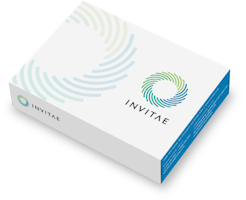
Invitae ARSE-Related Chondrodysplasia Punctata Test
Test code: 04726 •
Test description
The Invitae ARSE-Related Chondrodysplasia Punctata Test analyzes the ARSE gene, which is associated with a bone-and-cartilage-development disorder, X-linked chondrodysplasia punctata 1 (CDPX1). Genetic testing of this gene may confirm a diagnosis and help guide treatment and management decisions. Identification of a disease-causing variant can inform recurrence-risk assessment and genetic counseling.
Ordering information
Turnaround time:
10–21 calendar days (14 days on average)New York approved:
YesPreferred specimen:
3mL whole blood in a purple-top EDTA tube (K2EDTA or K3EDTA)Alternate specimens:
Saliva, buccal swab, and gDNA are also accepted.Learn more about specimen requirementsRequest a specimen collection kitClinical description and sensitivity
Clinical description:
X-linked chondrodysplasia punctata (CDPX1) is characterized by stippled epiphyses that typically involve the ankle, toes, and fingers, although other bones may be affected. Males have shortened fingers and distinct facial features that include a flattening of the nasal bridge and nose. Calcifications of cartilage, particularly in the trachea, larynx, and bronchi, can cause breathing problems. Less commonly, features of developmental delay, hearing loss, vision abnormalities, or heart defects have been reported. Carrier females are not affected; however, some carrier females have been noted to have short stature.
Assay information
Invitae is a College of American Pathologists (CAP)-accredited and Clinical Laboratory Improvement Amendments (CLIA)-certified clinical diagnostic laboratory performing full-gene sequencing and deletion/duplication analysis using next-generation sequencing technology (NGS).
Our sequence analysis covers clinically important regions of each gene, including coding exons and 10 to 20 base pairs of adjacent intronic sequence on either side of the coding exons in the transcript listed below, depending on the specific gene or test. In addition, the analysis covers select non-coding variants. Any variants that fall outside these regions are not analyzed. Any limitations in the analysis of these genes will be listed on the report. Contact client services with any questions.
Based on validation study results, this assay achieves >99% analytical sensitivity and specificity for single nucleotide variants, insertions and deletions <15bp in length, and exon-level deletions and duplications. Invitae's methods also detect insertions and deletions larger than 15bp but smaller than a full exon but sensitivity for these may be marginally reduced. Invitae’s deletion/duplication analysis determines copy number at a single exon resolution at virtually all targeted exons. However, in rare situations, single-exon copy number events may not be analyzed due to inherent sequence properties or isolated reduction in data quality. Certain types of variants, such as structural rearrangements (e.g. inversions, gene conversion events, translocations, etc.) or variants embedded in sequence with complex architecture (e.g. short tandem repeats or segmental duplications), may not be detected. Additionally, it may not be possible to fully resolve certain details about variants, such as mosaicism, phasing, or mapping ambiguity. Unless explicitly guaranteed, sequence changes in the promoter, non-coding exons, and other non-coding regions are not covered by this assay. Please consult the test definition on our website for details regarding regions or types of variants that are covered or excluded for this test. This report reflects the analysis of an extracted genomic DNA sample. In very rare cases, (circulating hematolymphoid neoplasm, bone marrow transplant, recent blood transfusion) the analyzed DNA may not represent the patient's constitutional genome.
You can customize this test by clicking genes to remove them.
Primary panel
NSDHL-related disorders have clinical findings that overlap with chondrodysplasia punctata (CDP). In addition to CDP, individuals with CHILD syndrome have ichthyosis, limb defects, and visceral anomalies. Depending on the clinical presentation of the patient, clinicians may wish to broaden the analysis by including NSDHL. This gene can be added at no additional charge.
Question about billing?
Find answers